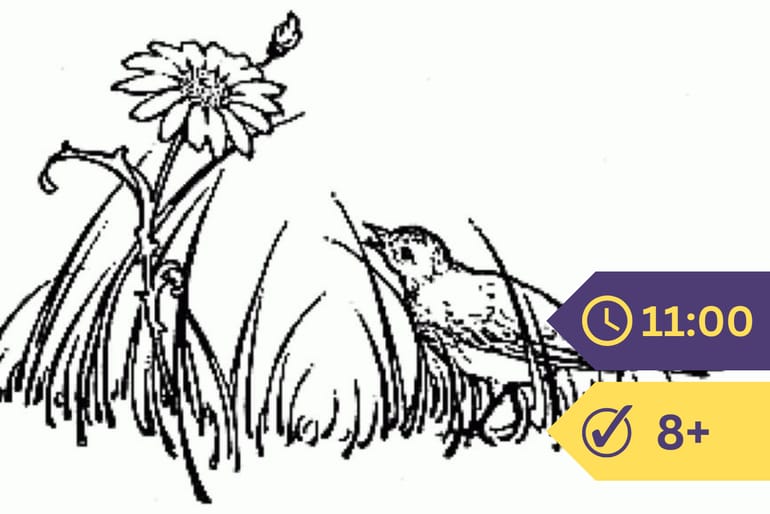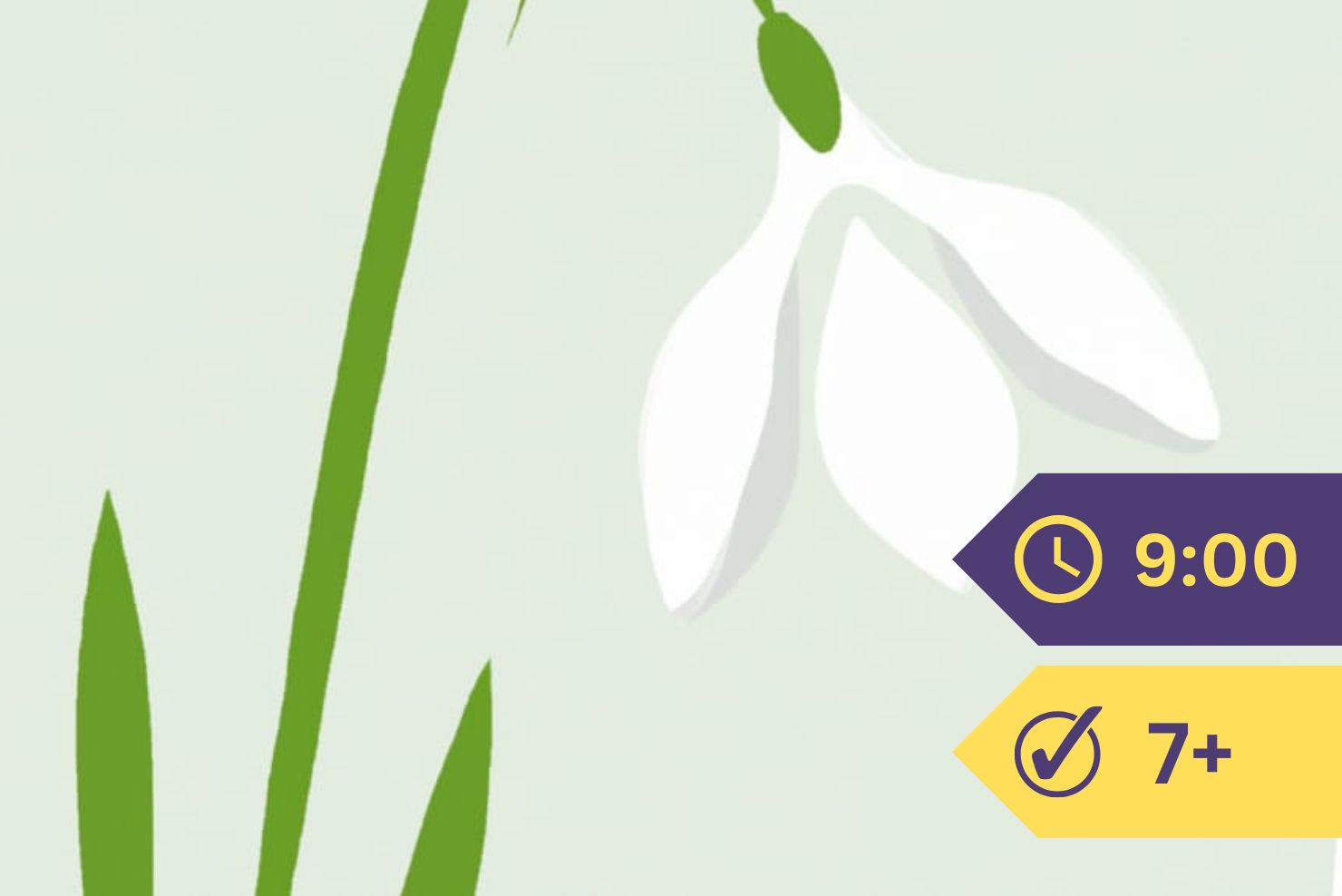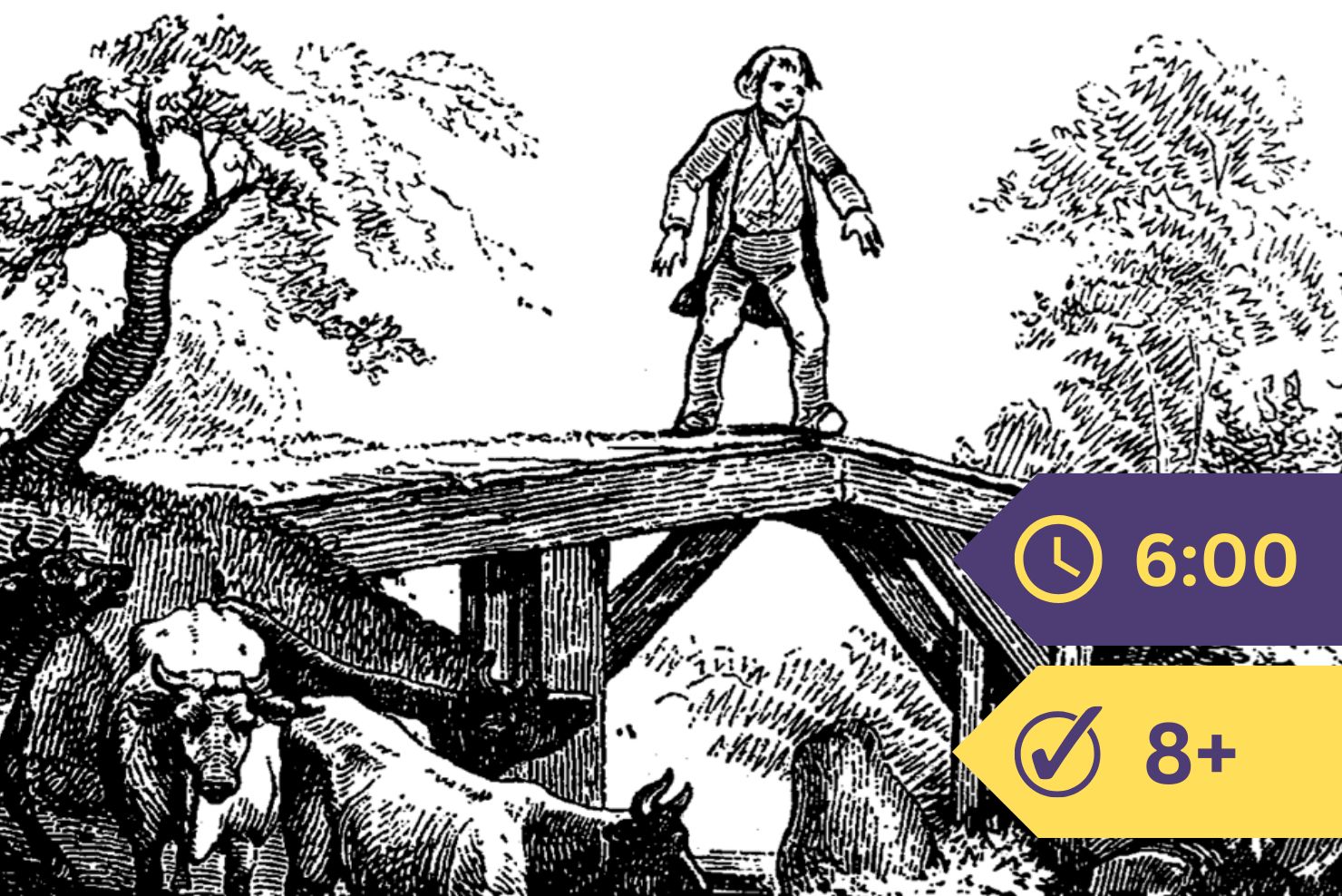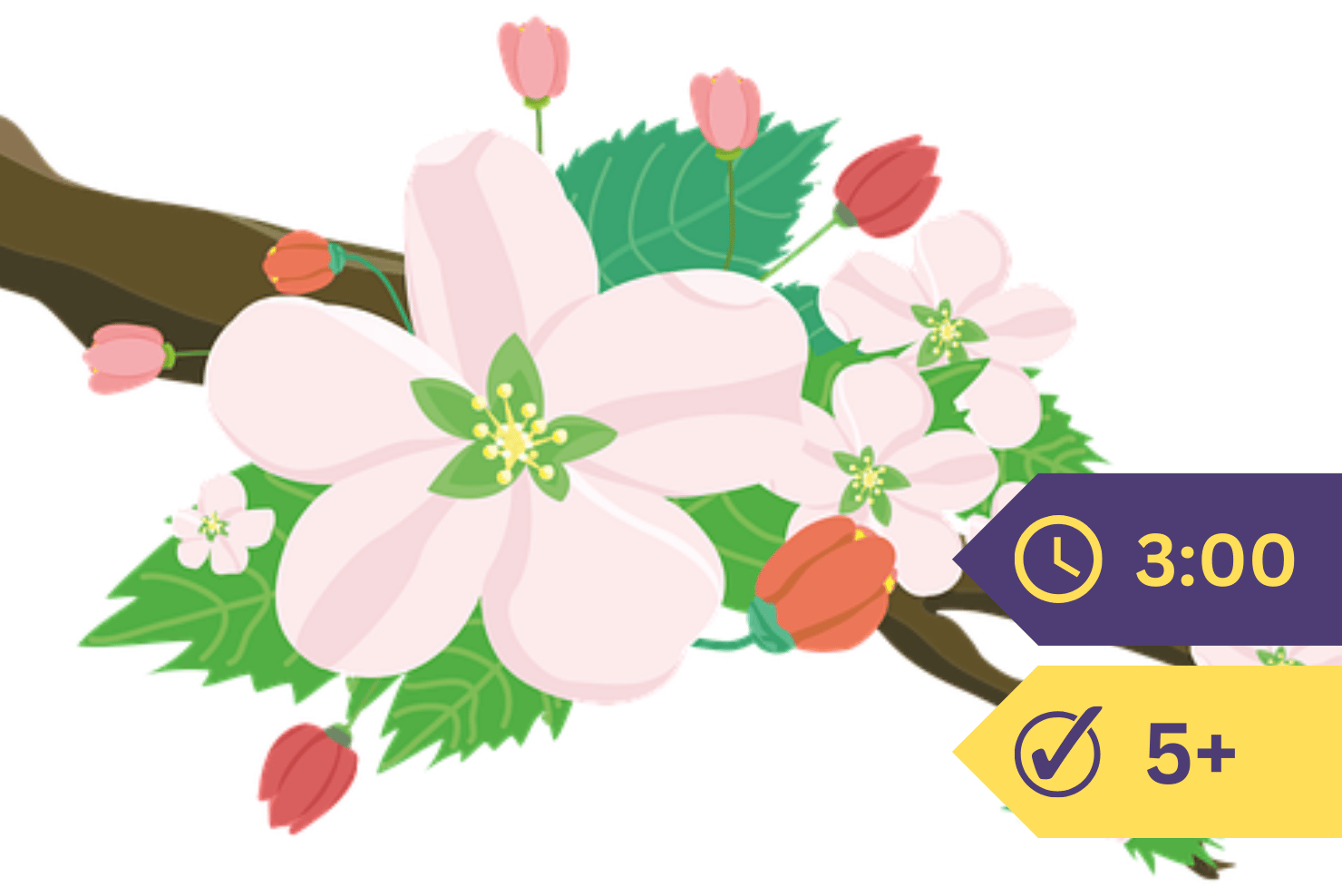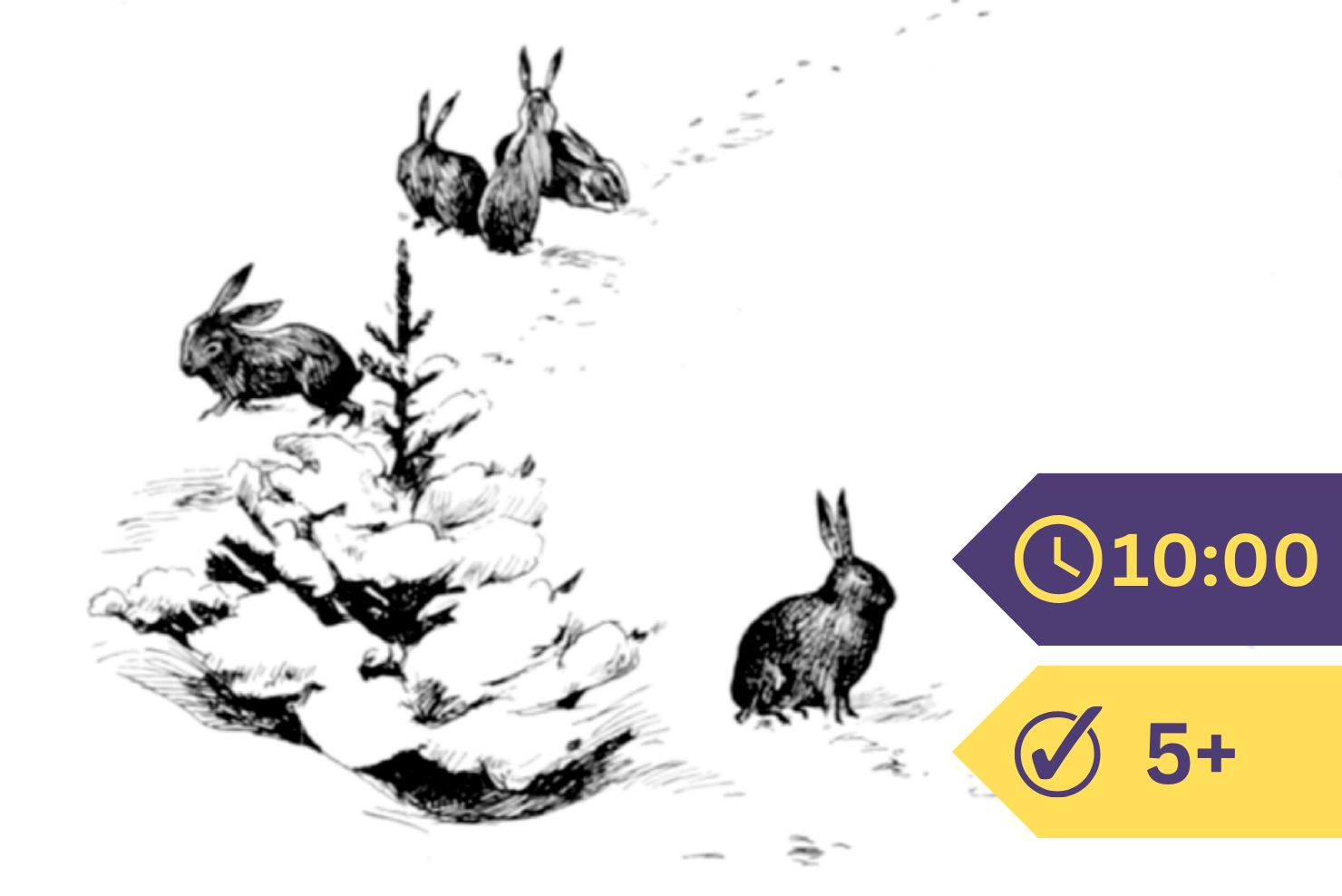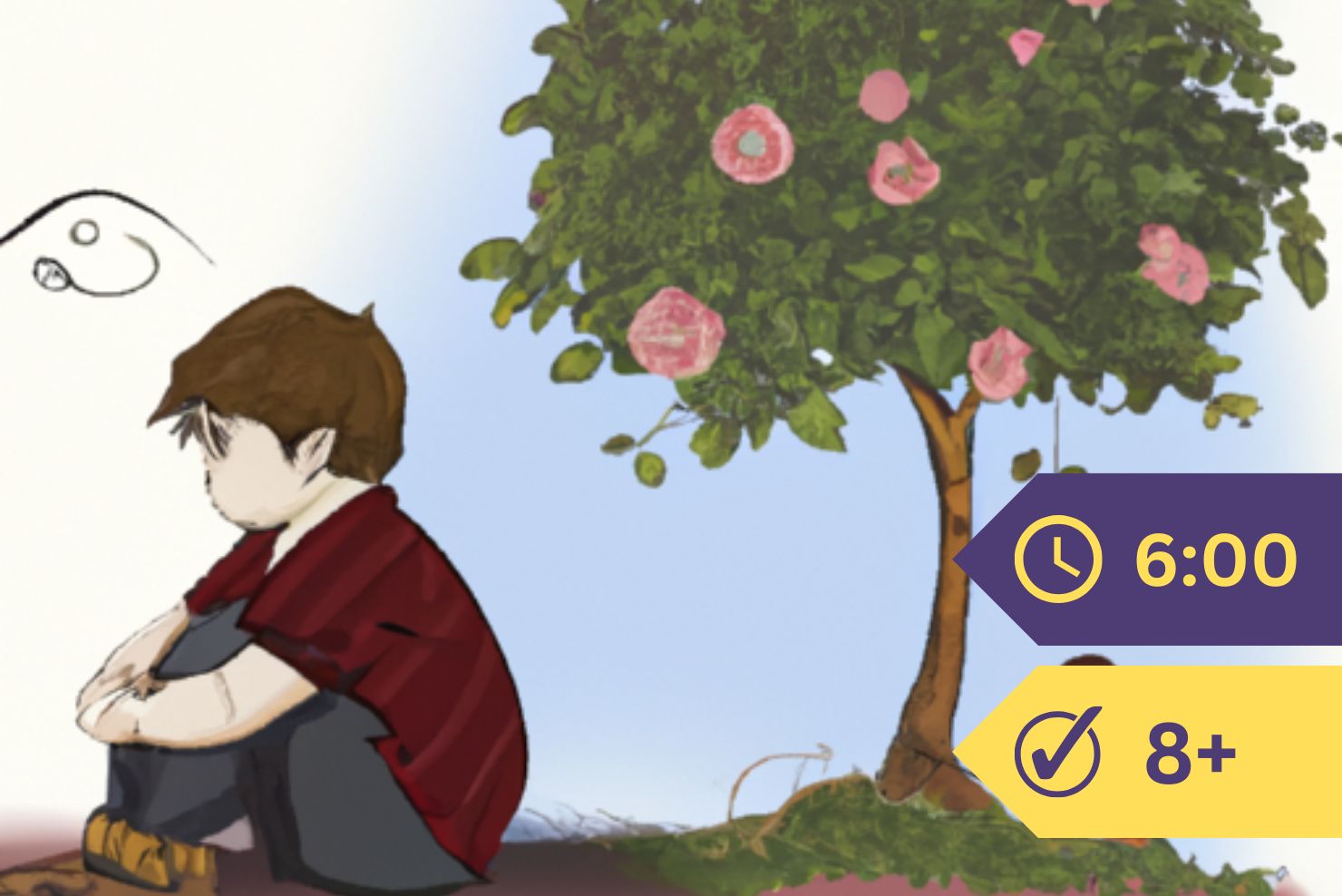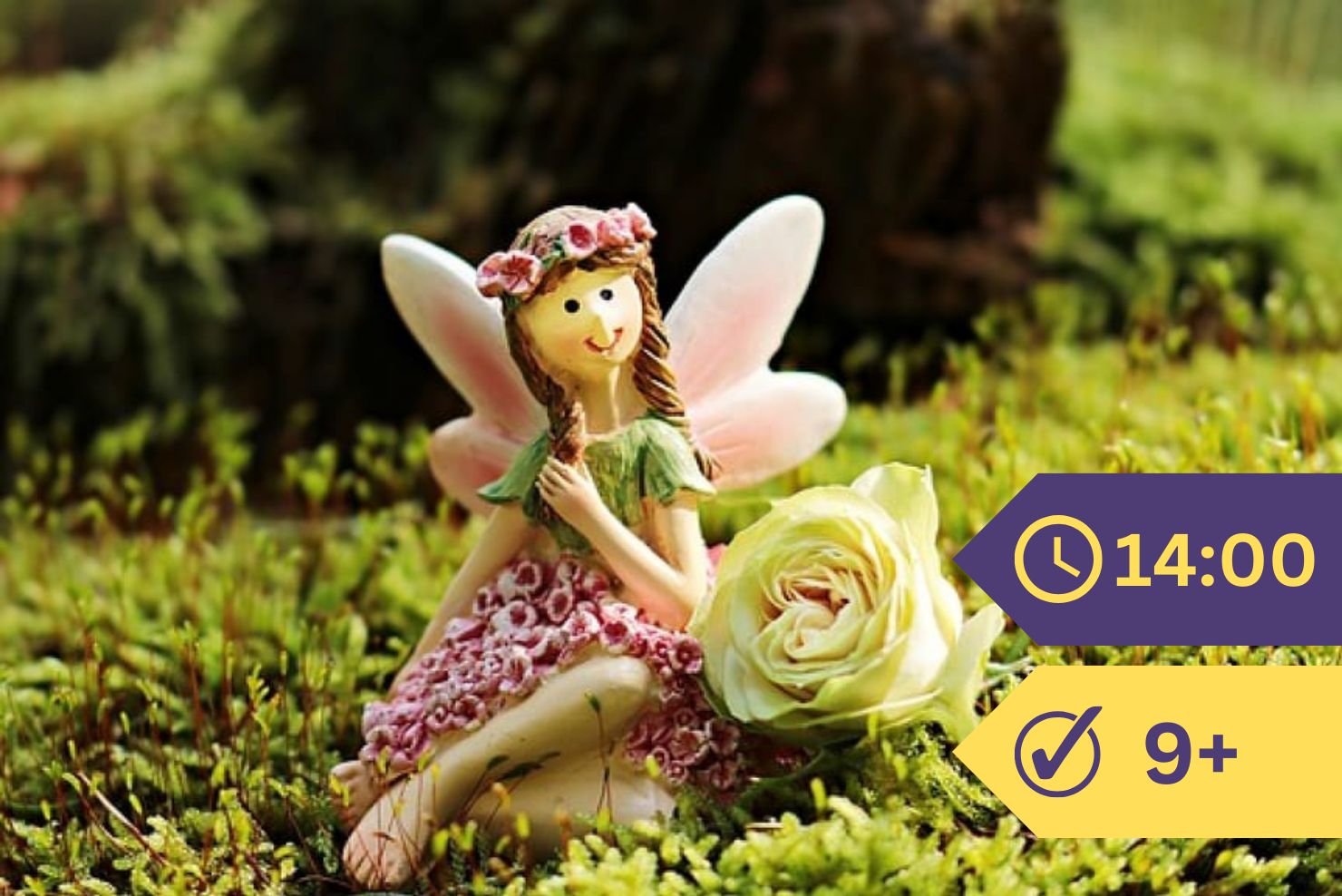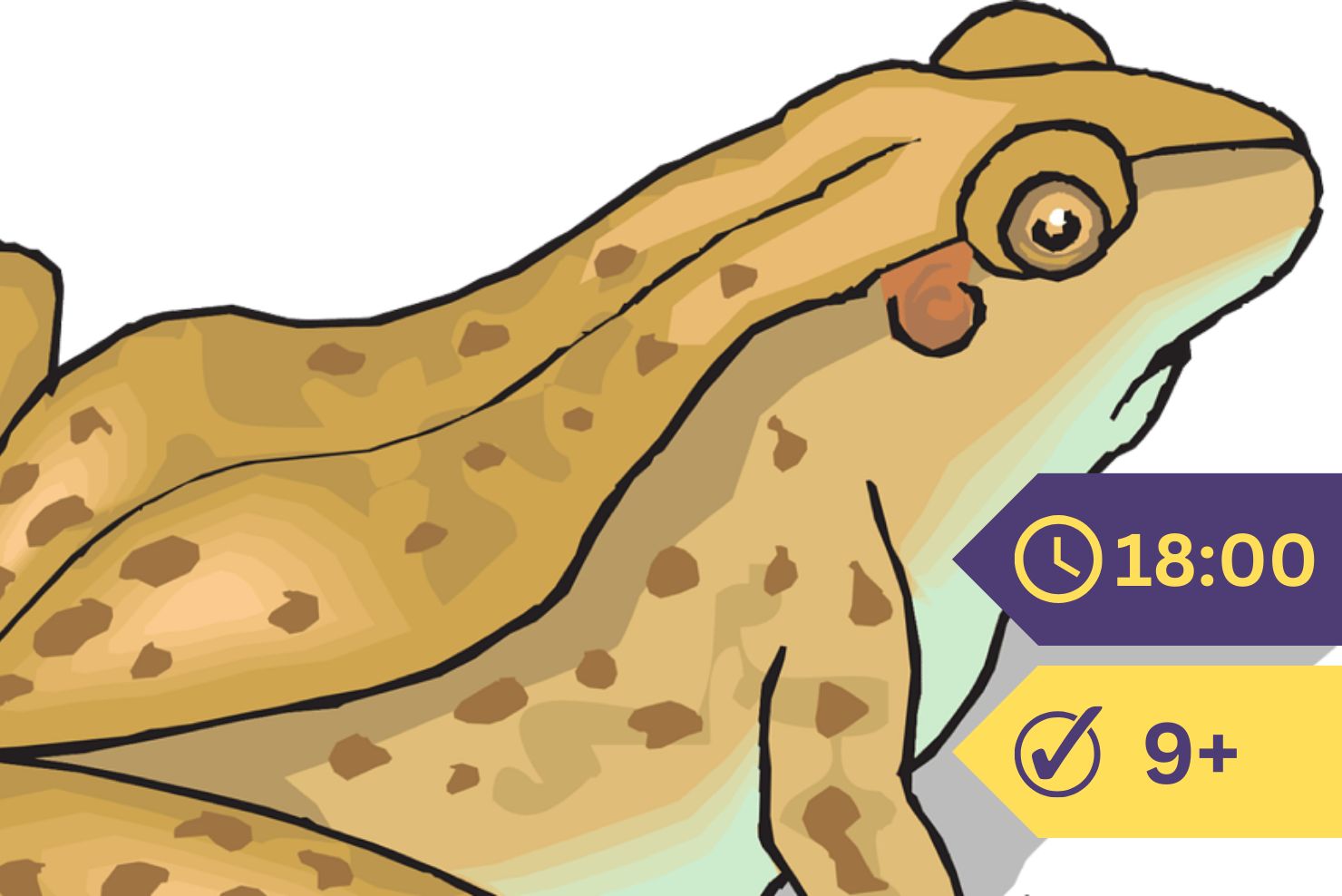Listen now….
Outside, close to the road, there is a mansion. You’ve surely seen it yourself!
In front of the house is a small garden with flowers and a painted fence. Right there, on the edge of the ditch, in the midst of the lovely green juicy grass, grew a Daisy. The sun shone just as warm and just as beautifully on that little flower as on the large, richly blooming flowers in the garden. That’s why the Daisy grew from hour to hour.
One morning, the flower was in full bloom with its bright white petals that stood around the golden sun inside like rays. The Daisy did not think that nobody saw it there in the grass, and that it was just a poor, despised flower. No, it was so content and happy! It turned to the sun, looked into it, and listened to the Lark, who was singing joyfully in the air. The Daisy was so happy as if it were a big holiday. Yet it was just an ordinary Monday.
All the children were at school and while they were learning everything there, the little flower was also learning something. The warm sun, the little Lark that sang so clearly and beautifully, everything nearby told it how good God was. The Daisy looked with a kind of reverence to the happy bird that could sing and fly, but it was not at all sad that it could not do this itself. It could still hear and see it! The Daisy thought, “The sun shines on me and the wind kisses me. Oh, how rich I am!”
Inside the fence of the garden, there were many stiff, noble flowers. The less they smelled, the prouder they held their heads. The peonies puffed themselves up to be even bigger than the roses. But it is not the size that counts.
The tulips had the most beautiful colors – they knew that – and they stood there so attractively so that everyone could see it even better. They did not pay any attention to that little Daisy out there, but it looked at them all the more and thought, “How rich and beautiful they are. Yes, that beautiful bird will certainly come down on them one day! Fortunately, I am so close by, then I can still see all that beauty!”
And while the little flower thought this, the Lark flew in. “Chirp, chirp,” he chirped cheerfully. He did not fly to the peonies and tulips, no, he flew to the little Daisy in the grass. The flower was so joyful and surprised that it did not know what to think.
The bird danced around the flower and chirped, “No, but what soft grass there is here! Look at what a sweet flower with gold in its heart and silver on its petals!” And indeed: the yellow heart in the Daisy looked like gold. The petals around it were bright white and shone like silver.
How immensely happy the Daisy was, no one could understand. The bird kissed the flower with its beak, sang a song, and then flew back into the blue sky. It took at least a quarter of an hour before the flower came to its senses. It was a little scared and yet also soulfully happy as it looked at the other flowers in the garden. They had now also seen the happiness that had befallen the little flower. They should have understood what great joy it was that the bird had come.
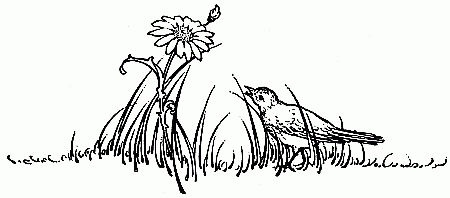
But the tulips still stood stiff and tight-lipped, their heads fiery red with anger. The peonies had thick heads, too – phew! It was a good thing they couldn’t talk, or Daisy would have gotten a scolding. The poor little flower could tell they were in a bad mood, and it made her feel very sorry.
At that moment, a girl came into the garden with a large, sharp, shining knife. She went to the tulips and cut them one by one. “Oh!” sighed Daisy, “that’s terrible, it’s all over now!” The girl took the tulips away, and Daisy was glad to still be outside in the grass and to be small. The little flower felt truly grateful. As the sun went down, it folded its petals, went to sleep, and dreamed of the sun and the little bird all night.
The next morning, as the flower happily stretched all its white petals like little arms up towards the sky and the light, it recognized the voice of the bird. Now it was a sad song he sang, not a cheerful “cheep-cheep.” Yes, the poor lark had a good reason for that. He was caught and now sat in a cage near the open window. He sang a song about his life as a free bird. He sang about the young, green grass in the field and the wonderful journey he could make with his wings high up in the sky. But the poor bird remained in a sad mood. He was now trapped in a cage.
The Daisy wanted to help so badly, but it didn’t know how. It completely forgot how beautiful everything around it was, how warm the sun was shining, and how lovely white its own petals were. Oh, it could only think of the caged bird, to whom it could not offer help.
At that moment, two little boys came into the garden. One of them had a knife in his hand, just as big and sharp as the one the girl had used to cut the tulips. They went straight to Daisy, who did not understand what they wanted.
“We can cut out a nice piece of grass for the lark here!” said one boy. He began cutting a square around the Daisy so that it was in the middle of the grass sod.
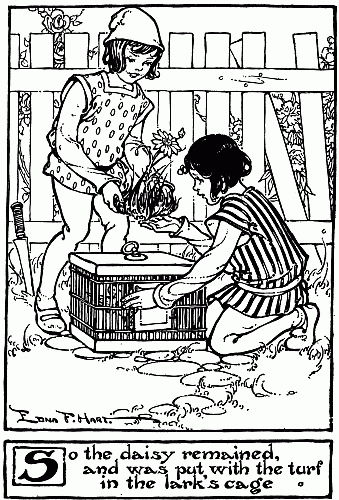
“Pull that flower out!” said the other boy. The Daisy trembled with fear. Being pulled out of the grass meant losing its life for a flower. The Daisy wanted to stay alive now that it had to be in the cage of the captured lark with the grass sod.
“No, leave it there!” said the other boy, “it looks nice like that.” And so the flower remained and came with the grass sod into the lark’s cage.
But the poor bird loudly complained about his lost freedom and beat his wings against the iron bars of the cage. The Daisy couldn’t talk, so it couldn’t comfort the bird, sadly. So the whole morning passed.
“There’s no water here!” said the caged lark, “they’re all gone and have forgotten to give me a drop to drink. My throat is dry and feels burning. Inside, I’m fire and ice, and the air feels so heavy. Oh, I think I’m going to die. I have to get away from the warm sunshine, from the fresh green, from all the wonderful things God has created. Oh, what a pity.” Then he poked his beak into the cool grass sod to refresh himself. There he noticed the Daisy and the bird nodded to the flower. He kissed it with his beak and said, “You’ll just wither away in here too, you poor little flower.”
“They gave me you and this small patch of grass instead of the vast, wide world that I had out there. Every blade of grass must be a green tree for me, every one of your white petals a fragrant flower. Ah, it only tells me how much I have lost!”
“Could someone but comfort the bird!” thought the Daisy. But it couldn’t even rustle a leaf. The scent that flowed from its delicate petals was much stronger than usual for this flower. The bird also noticed, and even though it was longing for water and painfully pulling out green blades of grass, it did not touch the flower.
It became evening, and still no one came to bring the poor bird a drop of water. Then it stretched out its beautiful wings, shook them spasmodically, its song had become a melancholy peep-peep. Its head bent towards the flower, it had gone too long without water, and its heart broke with longing for freedom.
After this, the flower could not, as the evening before, fold its petals back together and go to sleep peacefully. It drooped its head sick and sad to the earth.
The next morning, the boys came back. When they saw that the bird was dead, they cried bitter tears. They dug a grave with love that was decorated with flower petals. The dead bird was laid in a beautiful red box. The poor bird would get a royal burial. When it was still alive and singing cheerful songs, they forgot about it. They let it sit in its cage and suffer from thirst. But now that it was gone, they were sad and took care to give it a beautiful end.
The patch of grass with the Daisy was thrown on the road in the dust. No one thought anymore about the flower that had really loved the bird so much and had wanted to comfort it.

